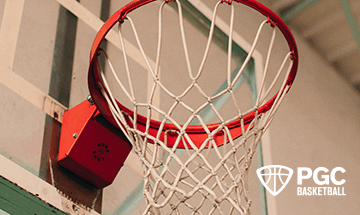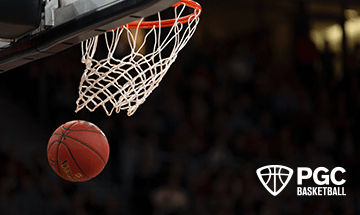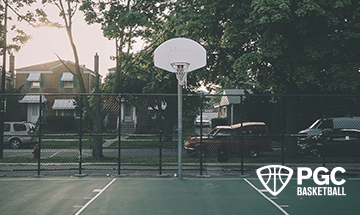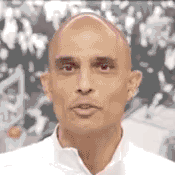Increase Your Mental Toughness
– Think The Game Thursday –
Mental toughness is like a muscle in your body – it needs to be exercised in order to be strengthened. Discover 3 practical steps to mastering mental toughness in this week’s video with Matt McLeod.
Think Deeper
FIVE TRAITS OF MENTALLY-TOUGH ATHLETES:
What percentage of the time do you train physically vs. mentally?
I tend to hear the same responses over and over. Less than 5% of training time is spent on the mind. It’s like a muscle. If you don’t train it, it doesn’t grow. Mental toughness is a measure of individual resilience and confidence. It is demonstrated through your emotional intelligence and the way you approach tough circumstances in life and on the court. More than talent or skill, mental toughness is the greatest individual factor in determining future success.
- Accept Limitations
- Don’t Make Excuses
- Be Unruffleable
- Be a Problem Solver
- Seek Coaching
Mentally- tough athletes know their limitations don’t limit them. In fact, they embrace shortcomings as fuel for improvement. So many athletes spend their time fighting the obstacles that they never grow their natural talents.
NBA guard Isaiah Thomas, for example, could have let his five-foot, nine-inch stature limit him. He had two choices: 1) accept the verdict that he was too small to be a professional basketball player, or 2) focus onthe strengths he’s been blessed with. By shifting his focus from his limitations to his strengths, Thomas had an explosive 2016 campaign and is slowly becoming quite possibly one of the best small guards of all time.
Mentally-tough players understand tough times don’t last, but tough people do. As cliché as that may sound, you will never find a mentally-tough player making an excuse for anything that happens to or around them. They know excuses, no matter how “good” an explanation or justification, are a waste of time and words. That energy is better spent trying to enhance what is going on around them.
Imagine yourself working out in a hot gym in the middle of the summer with a coach who makes Bobby Knight look like fabric softener. How would you handle that situation? Could you persevere and find a way to get better or would you give in to the circumstances? Being unruffleable means being unbothered by the things you cannot control. This applies both on and off the court.
As athletes, you will be presented with problems in practice, in games and in life. The goal is to not only identify the problem but to become the type of person who can create and implement simple solutions for not so simple situations. To become a problem solver, you must learn to anticipate—see the problem develop before it even happens. Anticipation is such an important skills because it affords you time. To some, it will look like you came up with a brilliant solution on the spot, but really you were just thinking ahead and had given yourself TIME to see the problems from all angles and answer the questions each angle presented. Mentally-tough athletes don’t run from problems, they welcome them.
Here is a simple rule of thumb for athletes who claim to be or want to be mentally tough: you should need the least coaching, but seek it the most. Being coached is not a sign of weakness, it is a sign of maturity and growth. All mentally-tough athletes know in order to get ahead of the competition, they need to adopt a growth mindset. It is this kind of thinking that allows them to turn losses and mistakes into learnings. The best way to adopt a growth mindset is to be curious, ask questions and do new things. Be like a detective with a magnifying glass trying to seek out your improvement.
Just like shooting, passing or dribbling, mental toughness is a skill that needs to be worked on daily if you want it to improve. Your pathway to success in mental toughness will be similar to any of the aforementioned skills. You will start off slow, you will stumble, you will grow frustrated, and you may feel like you’re not making any progress. KEEP GOING! Perseverance is the essence of mental toughness. Embrace limits, eliminate the excuses, show off your unruffle-ability, be the solution, and chase improvement. The end result is worth the journey.
READ MORE: FIVE WAYS TO PRACTICE MENTAL TOUGHNESS OFF THE COURT
Related Articles
Two Youth Basketball Organizations from the Jr. Nba’s Flagship Network Partner up to ‘teach the Game the Way It’s Meant to Be Played’
For the first time in history, two best-in class youth basketball organizations and members of the Jr. NBA Flagship Network – PGC Basketball and Pro Skills Basketball – have entered into an official partnership.
Upset About Something? (Maybe You Ain’t Taught It Well Enough)
One of the most important concepts for a coach to understand is The Responsibility Principle. If things aren’t going well, you have just one person to blame: yourself.
A Disturbing Trend That Could Destroy Youth Basketball Forever
Today I want to share something that’s been troubling me for the better part of the last year or so…it’s this new disturbing trend that could destroy youth basketball.
About PGC
PGC Basketball provides intense, no-nonsense basketball training for players and coaches. Our basketball camps are designed to teach players of all positions to play smart basketball, be coaches on the court, and be leaders in practices, games and in everyday life.
We combine our unique PGC culture with a variety of teaching methods and learning environments to maximize the learning potential of those that attend our sessions. In addition to spending 6-7 hours on the court each day, lessons will be reinforced through classroom sessions and video analysis.
Our goal at PGC is to empower you with the tools to fulfill your basketball dreams, while also assisting you in experiencing the joy of the journey.
To learn more about PGC Basketball, including additional basketball training tips and videos, visit our YouTube Channel or find us on Facebook, Instagram, and Twitter.













Share This Post